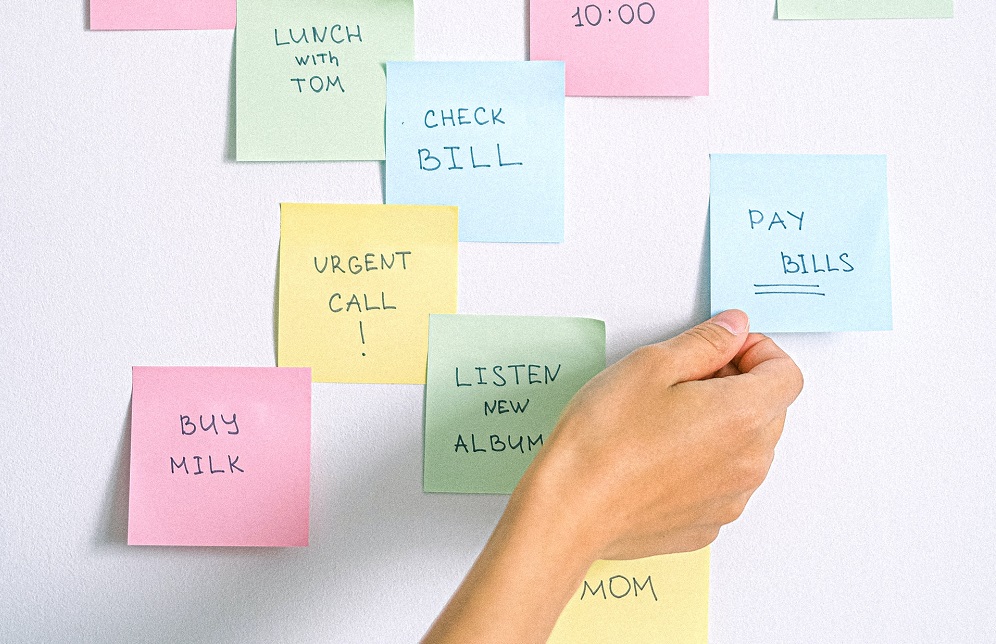
Making Daily Life Work
About the Author
Brenda Dater, MSW, MPH, is the executive director at AANE and the author of “Parenting Without Panic.” Brenda is a mom of three, and her eldest is an Autistic transgender woman. Brenda has facilitated parent support groups for over 20 years and thoroughly enjoys creating an environment where parents can find the support, information, and the community they need.

We all have things we need to do each day and a finite amount of time and energy to do them. Many of us face similar barriers in accomplishing tasks, but Autistic people can experience heightened levels of stress and exhaustion navigating a world not set up to accommodate them. This can make accomplishing tasks and managing daily life even more difficult. I’d like to share some of the key strategies I’ve learned from my own life, my Autistic daughter, and the many Autistic individuals I have worked with over the years.
Be aware of challenging days or weeks and plan how you’ll replenish yourself. When we have a challenging day or week, recognize that for a period of time, we may have to do more than we’d like or tackle tasks that deplete our energy. My Autistic daughter gave me permission to share that when she has to make a phone call about a health insurance problem that can’t be addressed by email or text, she has to clear her calendar of any other hard tasks that day so she can make the call. She explained to me that phone calls make her so anxious, she feels like it takes all her energy, and she often has to take a nap right afterwards. Although she does not enjoy the task of making phone calls, she knows sometimes she has to do it, and she modifies her day so that she can replenish her energy by spending time with our dog or reading something she enjoys.
Pay attention to perfectionistic tendencies and give permission to be “good enough.” Wanting to do our best and seeing ourselves fall short of that ideal can be extremely disheartening. And yet, most things we need to do in a day don’t have to be, nor will they be, perfect. As a recovering perfectionist myself, I remember the intense anxiety I would feel when I couldn’t express myself as clearly and concisely in speaking or writing as I imagined in my head. I would often spend hours working on a presentation or project for minimal improvement. I’ve heard stories from so many Autistic students sharing similar sentiments. Wanting everything we do to be of the highest quality makes sense, but it comes at a tremendous cost. Instead of holding ourselves to impossibly high standards, it is important to evaluate what tasks need our absolute best and which can be good enough. For me, helping my daughter apply for state services requires my best. But sending out holiday cards can be done in January or February (or some years not at all).
Be realistic about what can be accomplished in a day. I often think that I can accomplish so much more in a day than is possible for me. I usually underestimate how long it will take to finish a task. And I know many Autistic individuals share this experience. They talk about starting and stopping multiple tasks during the day, and then feeling upset with themselves when they don’t finish any of them. If it’s hard to determine how long tasks will take, gathering data to help better estimate how much time is needed can help. Setting a timer on a phone while working will give important information for next time and provide better understanding of tasks like how long it takes to clean up after a meal or fold and put away laundry.
Consider why certain tasks cause stress to determine the most helpful approach.
- Is a task particularly difficult because you don’t know how to do it? My daughter was very stressed about managing her day if the rest of the family was away because she didn’t know how to cook for herself. She was interested in learning how to prepare meals and found cookbooks that contained recipes she wanted to make. Now, she’s feeling much more capable of cooking because she’s regularly practicing and improving her skills.
- Do you know how to do the task, but have a hard time initiating? If a task is not fun or interesting, it can be hard to get started. Consider pairing the undesirable task, like doing dishes, with something enjoyable, like watching a YouTube video or listening to a podcast. This can make unenjoyable tasks more tolerable.
- Is the task challenging because it is new? Everyone starts as a beginner with a new task or skill. It takes time and persistence to get better at things. Make peace with being a novice and understand that the work put into learning and practicing a task will make it easier to accomplish over time.
Build in time for things you enjoy. To help reduce the impact of day to day stress, we need to build in time for things we enjoy. Think about and plan time to do things that restore energy each day away from the demands and external expectations of others. Spending time with the topics and things that interest us can lead to decreased stress, reduced anxiety, and create connections with others who enjoy the same things.
And please remember that when we make mistakes or don’t accomplish everything we want in a day, we’ll have more chances in the days ahead. We need to be kind to ourselves as we learn what works and helps us feel like we can manage and flourish in our daily life.
Stay Current
Subscribe for AANE weekly emails, monthly news, updates, and more!






